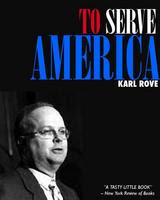Andrew wrote, "Ask Karl Rove. Then think about the netroots left. Kinda similar, aren't they?"
It's a compare-contrast that is worthy of analysis, not just punditry; and my own take is that the netroots left is ... not original. What do I mean by that?
They grew up during the time when Ralph Reed was showing frightening new ways to organize voter "blocks" under the umbrella of the "Reagan Devolution" ... er "Revolution", and Grover Norquist was showing how issue politics could turn into a big money spigot could turn into "The Hammer" that could consolidate a "permanent Republican majority". Rush Limbaugh was making air-waves. By the time lefty netroots had emerged in 2001, Rove was on his tenth or eleventh election and second presidential re-election.
Against this backdrop and the weakening organizational "blocks" of the old left, the netroots popped onto the scene, as a new organizational tool. But I submit that it was ... at least four parts mimicry of things that people saw that were "working" or needed to be confronted, fire-for-fire. Along the way, they got more facile, more original.
It's almost a fallacy to make evolutionary political analysis like that, but it just seems incomplete to me casually to juxtapose "Rovianism" and "left netroots", as pundits do, as not being sins of the same father when one thinks of them in the pejorative ...
----------------
edit: here is some more evidence of 'reactionary' forces at work, not groups forming de novo:
The momentum reference related to MSNBC’s recent aggressive positioning of the program “Countdown With Keith Olbermann” as the centerpiece of this all-news cable network’s latest effort to become more competitive with Fox News Channel and CNN.
And for theory junkies, those thinking about the sordid ethics of it all, an interesting take on tit-for-tat, the prisoner's dilemma:
 |
| "The power of tit-for-tat in encouraging cooperation in unusual places has been explored by Robert Axelrod in The Evolution of Cooperation (Basic Books, 1984). He argues that it could explain the many spontaneous outbreaks of "peace" in trench warfare during World War I." |
sullylink





